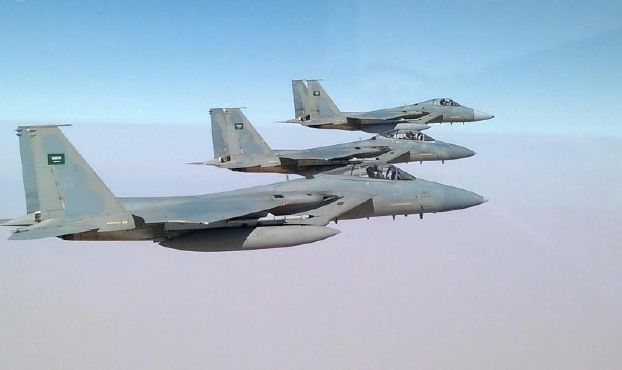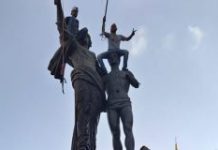Operation ‘Restoring Hope’ and securing Yemen’s future
Andrew Bowen/Al Arabiya
Wednesday, 22 April 2015
While the Saudi-led Operation “Decisive Storm” achieved its objectives, this new phase of this campaign to restore the sovereignty of Yemen’s government will require concerted diplomatic, economic, humanitarian, and military investment.
After a month of sustained military operations, “Operation Decisive Storm” successfully concluded yesterday after achieving its two principal objectives: preventing the Iranian sponsored Houthi insurgency from establishing an illegitimate government in Yemen at the expense of the country’s legitimately recognized government and preventing Yemen from becoming a point from which the Houthis could threaten the security and stability of Saudi Arabia and its Arab neighbors.
Under the leadership of King Salman, this multi-national coalition demonstrated the Arab League’s ability to come together and collectively respond against regional security threats. Its air campaign successfully eliminated the Houthi militia’s ability to seriously threaten the security and stability of the Arabian Peninsula through the elimination of advanced weaponry and securing Yemen’s airspace. King Salman ordered yesterday as well the deployment of The National Guard to help further secure the long Saudi border with Yemen from further attempts by Houthi militants to threaten the Kingdom’s security. Also, Egypt’s navy, along with assistance from the U.S. Navy, has blockaded Yemen’s territorial waters to both ensure that outside states such as Iran don’t interfere in Yemen’s sovereignty and to prevent the Houthis from disrupting commerce through the Suez Canal.
Operation “Decisive Storm” laid the foundation for the most challenging phase of this multi-national effort to support Yemen’s future
After a much-concerted diplomatic effort, this broad coalition persuaded the U.N. Security Council to unanimously support with an abstention from Russia an arms embargo on Yemen’s non-governmental militias. The Operation also put pressure on Iran to support a peace process that would bring the Houthis to the table to meaningfully negotiate. At the time of writing, reports indicate that an agreement between Yemen’s political parties is much closer than it was before this Operation began. Former President Ali Abdullah Saleh, whose military units are aligned with the Houthis, has shown signs as well that he would prefer a political settlement.
While some commentators have been quick to criticize this military operation on the basis that the campaign hasn’t led to the re-establishment of the Yemeni government in Sanaa, it would be mistake to confuse the limited objectives of Operation “Decisive Storm”- which focused on eliminating the Houthis’ ability to monopolize Yemen’s political future and their ability threaten the security mainly of Saudi Arabia and the GCC- with the broader goal of supporting the restoration of Yemen’s sovereignty.
Three critical areas
Operation “Decisive Storm” laid the foundation importantly for the most challenging phase of this multi-national effort to support Yemen’s future. Announced yesterday, Operation “Restoring Hope” focuses on three critical areas: supporting a U.N. political process to restore a legitimate government and ensure its long-term sovereignty, providing humanitarian assistance to Yemeni citizens who have faced the severe hardship of months of violence and conflict, and providing assistance in combatting terrorism.
While the first phase of the Coalition’s efforts weighted heavily on the use of military operations, this new phase focuses on employing military, diplomatic, economic, and humanitarian tools to secure Yemen’s long-term stability. In all of these areas, the Arab League and its global partners including the U.S. will need to come together to robustly support Yemen’s transition. It will be the most challenging phase of the Coalition’s efforts because the political differences remain deep on the ground, the humanitarian situation is grave, terrorism remains a substantial challenge, and the country’s economy is broken.
Political settlement
While there are signs that the different political and armed parties are moving closer to seeking a political settlement, deep differences still remain between President Hadi, former President Ali Abdullah Saleh, and the Houthi insurgency (to name only a few of the contesting parties) which may lead to further spikes of violence. In addition to their differences, this violence has benefited al-Qaeda in the Arabian Peninsula who has deepened their position in the South and will become increasingly harder to dislodge. Until a political solution is reached, the humanitarian situation will remain severe, the country’s economy will continue to flounder, and terrorism will still be a challenge.
Supporting Operation “Restoring Hope” will require a sustained, concerted effort for the foreseeable future. A political settlement is only the first step towards securing Yemen’s long-term stability and sovereignty. In order to address Yemen’s deepening humanitarian crisis, exacerbated by a failing economy and violence, which will threaten the longevity of any future political settlement, these states will need to make a long-term commitment to rebuilding the state which offers the Yemeni people a future. Failing to do so will only lead to further violence and instability, which will continue to threaten the stability of the region. This new ambitious operation, though, is an important collective step to support Yemen’s future and its people.
















